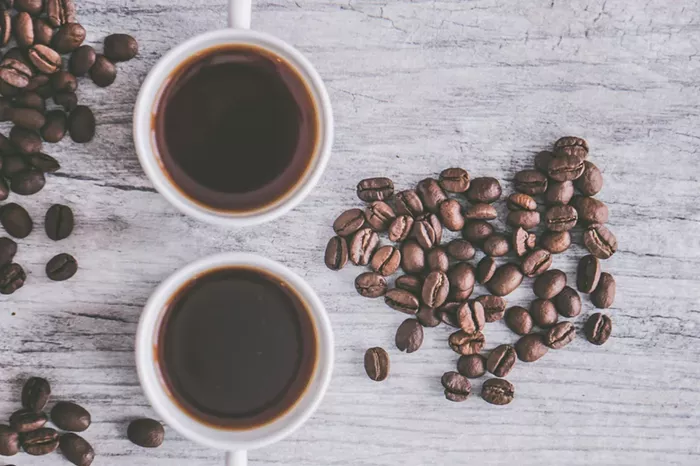Coffee enthusiasts often face the question: how much ground coffee do I get from one cup of whole beans? The answer is not only about volume but also about weight, grind size, and the method of brewing. Understanding the conversion between whole beans and ground coffee is essential for achieving the perfect cup every time. In this article, we’ll break down the key factors that affect this conversion and provide tips for optimal brewing.
Conversion Ratio: Whole Beans to Ground Coffee
General Conversion
For most coffee brewing methods, 1 cup of whole coffee beans typically yields approximately 1 cup of ground coffee. This is because the volume of the beans remains roughly the same after grinding. However, while the volume stays consistent, the weight is a more accurate measurement for precise coffee brewing.
Weight Measurement: The Most Accurate Way to Measure Coffee
Weight vs. Volume
When measuring coffee, weight is the key metric for consistency. A typical 1 cup (8 fluid ounces) of whole coffee beans weighs about 82-85 grams, depending on the type and roast of the beans. While volume measurements can vary slightly due to different bean shapes and sizes, weight provides a more reliable and repeatable result, ensuring that your coffee strength and flavor remain consistent from brew to brew.
Why Weighing Is Important?
Measuring by weight ensures that the coffee-to-water ratio is correct, which plays a crucial role in the final flavor profile. Using weight also accounts for any slight variations in bean density, which can vary based on the origin, roast level, and moisture content of the beans.
Factors Affecting Yield
While the conversion ratio between whole beans and ground coffee is generally consistent, a few factors can influence the final yield and the brewing experience:
Grind Size
Different grind sizes—coarse, medium, and fine—can affect the volume of ground coffee. For example, a coarse grind for a French press may take up more space than a fine grind used for espresso, even though the weight remains the same. While the weight of 1 cup of whole beans typically yields around 1 cup of ground coffee, the grind size can make it appear like there is slightly more or less ground coffee.
Bean Type and Roast
The type of coffee bean (e.g., Arabica vs. Robusta) and the roast level (light, medium, or dark) can also impact the conversion. Lighter roasts, for example, tend to be denser and therefore may weigh slightly more than darker roasts, which are more porous. Arabica beans are generally less dense than Robusta beans, so the exact amount of ground coffee you get from a cup of beans might vary based on the variety you use.
Practical Examples of Coffee-to-Water Ratios
Different brewing methods require different amounts of ground coffee to achieve the best flavor. Here’s a quick guide to coffee-to-water ratios for various brewing methods based on weight measurements:
French Press
Recommended ratio: 1:15 (coffee to water)
For 1 cup (240ml) of water, you’d use approximately 16-17 grams of ground coffee.
Drip Coffee Maker
Recommended ratio: 1:17 (coffee to water)
For 1 cup (240ml) of water, use about 14-15 grams of ground coffee.
Espresso
Recommended ratio: 1:2 (coffee to water)
For a single shot of espresso (about 30ml of water), use 9-10 grams of ground coffee.
By following these ratios, you can adjust the amount of ground coffee to match your preferred strength and brewing method.
Tips for Grinding Coffee Beans
The right grind and freshness of coffee beans are critical for getting the best cup. Here are some helpful tips for grinding your beans:
Grind Freshness
Grinding coffee beans just before brewing is essential for preserving the flavor and aroma. Once beans are ground, their surface area increases, which allows the oils and aromatic compounds to escape quickly. Freshly ground coffee ensures a more flavorful and aromatic cup.
Grind Consistency
For a more consistent grind, use a quality burr grinder. Blade grinders, while affordable, can produce uneven grinds that affect extraction and lead to inconsistent flavors. A burr grinder, on the other hand, grinds beans uniformly, which is crucial for optimal extraction.
Customer Reviews and Experiences
User Feedback
Many coffee enthusiasts note that measuring by weight has helped them achieve more consistent brewing results. “I used to measure by volume, but weighing my beans has made a huge difference,” says Sophie, a regular coffee drinker. “I now get the perfect cup every time, and I can replicate the exact flavor I like.”
Expert Opinions
According to Tim Wendelboe, a world-renowned barista and coffee roaster, “The most important aspect of brewing coffee is ensuring the right coffee-to-water ratio. Using a scale for both coffee and water will give you the most consistent results.”
Conclusion
Understanding how much ground coffee you get from 1 cup of whole beans is a vital step in brewing the perfect cup. While volume provides a rough estimate, weight offers the most accurate measurement for consistency. Factors such as grind size, bean type, and roast level can influence the final result, but by following standard coffee-to-water ratios and using the right equipment, you can achieve a consistently excellent brew every time.
By measuring your coffee with precision, you’ll not only enhance your brewing consistency but also ensure the best possible flavor and aroma, making every cup of coffee a delightful experience.
Related topics:
- How Much Coffee per Water in a French Press?
- How Much Is a Gram of Coffee?
- How Much Caffeine in Ryze Mushroom Coffee? A Comprehensive Guide


